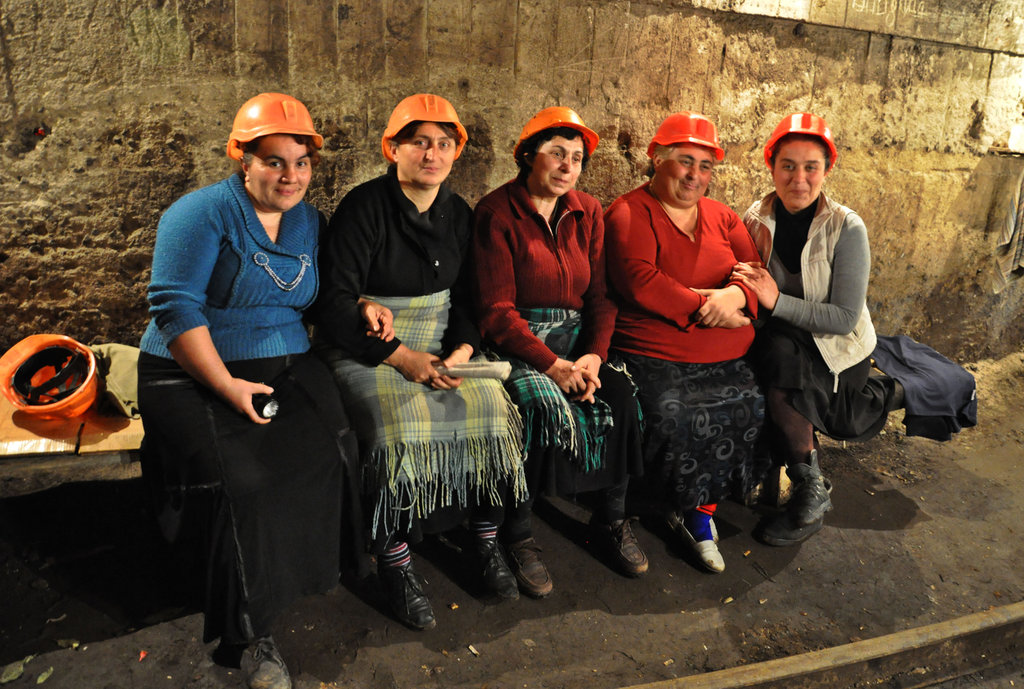

New polling by CRRC and NDI showed that unemployed women demand significantly lower salaries to start working than men. However, deeper analysis by CRRC suggests that this difference exists only among the better off.
Much has been made of the gender pay gap in Georgia. A related but different economic indicator is the reserve price of labour — the wage which someone wants before they would consider accepting a job.
The July 2019 CRRC and NDI survey suggests a gendered gap in the reserve price of labour as well: women want significantly less than men to start working on average. However, further analysis suggests that the gap only exists among the relatively well-off and not among poorer households.
On the survey, respondents that did not consider themselves employed were asked, ‘considering your education and skills, what is the minimum salary you would agree to work for?’ Eight per cent of respondents asked the question refused to answer and 16% reported they did not know.
Among those that did know how much they would want to start a job, the average was ₾719 ($242). For men, the average was ₾823 ($277) while for women, it was ₾643 ($217) — ₾180 ($61) less. Women’s lower reserve prices appear to stem from the larger share of women who report they would be willing to start working for ₾500 ($168) a month (33%) compared with men (22%).
Further analysis of this question suggests that sex remains a significant predictor of the minimum salary someone would be willing to start working for, controlling for education level, settlement type, household wealth (proxied through the number of assets they own), age, and the presence of children in the household.
Aside from sex, household wealth has a statistically significant association with the salary people want in order to start working. In Tbilisi and other urban areas, salary expectations are also higher than in rural settlements. Among the oldest age cohort in the survey (56+), expectations were lower.
However, after controlling for the interaction between sex and other variables rather than sex in and of itself, the data suggests that the interaction between a household’s wealth and sex is the key gender-related factor when it comes to the reserve price of labour.
There is no significant difference between the sexes in the reserve price of labour in poorer households. However, as wealth increases, men’s reserve price of labour increases at nearly twice the rate as it does for women: for every additional asset that a household owns, men want ₾80 ($27) more to start working on average, compared to ₾44 ($15) for women.
Rather than wanting more money to start working than men, women have lower reserve prices overall. While women want less to start working, this is only the case when women are in relatively better-off households. In poorer households, men and women that are not working are willing to start work at statistically indistinguishable wages.
Note: This blog post is based on two ordinary least squares regression analysis. The first controls for sex, age group, education level, household wealth (number of assets owned, from 11 asked about), settlement type (Tbilisi, Urban, Rural), and whether or not there are children in the household as independent variables. The dependent variable is the salary someone would want in order to start working. The second regression analysis looks at the interaction between all of the previously noted variables with sex.
The data used in the above analysis is available here. The replication code can be found here.
Dustin Gilbreath is the Deputy Research Director of CRRC-Georgia. The views presented in this article do not necessarily represent the views of CRRC-Georgia. The views presented in this article do not represent the views of the National Democratic Institute or any related entity.








